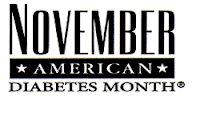November 14, 2011
by Chandra Thomas Whitfield
ATLANTA, Ga. — First, the bad news: Amid the nation’s ongoing recession, Historically Black Colleges and Universities, or HBCUs, continue to battle budgetary restrictions, diminishing resources and crippling education policy changes. Now, the good news: They can employ creative strategies to overcome them. That was the overarching message conveyed at a United Negro College Fund, or UNCF, town hall meeting held in Atlanta last week.
Presidents Dr. Julianne Malveaux of Bennett College and Dr. Carlton Brown of Clark Atlanta University, or CAU, respectively joined Dr. Forrest Moore, executive VP, Knowledge, Management and Education Liaison for America's Promise, Etienne LeGrand president of the W.E.B. DuBois Society and independent researcher Dr. Jacqueline Fleming, in the panel discussion at the Omni Hotel.
Panelists offered an array of solutions — from beefing up community and corporate partnerships to seeking diversified funding sources — as ways to tackle the problems that show no sign of subsiding.
“For the first time in U.S. history we’ve reached a point where the younger generation is worse off than the generation before it [in regards to educational outcomes],” Moore said. “That’s not acceptable. We need to get back to the idea that we are willing to fight for our children to be educated. Expectation for our [African-American] children is at an all-time low in our community.”
The forum was part of the November 9-11 UNCF Institute for Capacity Building conference, which brought together representatives and supporters of “special-mission institutions” to explore ways to sustain, grow and even thrive in a rough economy.
Malveaux opened with commentary about the impact that a decline in federal and state school funding is having on higher education.
“When K-12 is not adequately funded we [at HBCUs] have to deal with remediation with our students,” she said. “It’s all connected.”
Fleming, in turn, criticized HBCUs for being “way too dependent” on government dollars.
“We have too little control of Black education,” she said. “HBCU education is controlled far too much by outside forces. It ought to be controlled more by the community and parents.”
Malveaux rebutted Fleming’s point, asserting that the entire higher education system, including Ivy League institutions such as Harvard University, is dependent on government dollars.
On the heels of moderator Edith Bartley’s comments that federal funding for HBCUs has slipped to its lowest level in the nation’s history, Brown noted that Black institutions also often get snubbed for federal research grants that could close the gap.
“I’m just saying, be fair,” he said. “We can’t do what we need to do if we don’t have the resources. When you fail to diversify the range of scientific thinking you limit the range of scientific discovery.”
Both Malveaux and Brown espoused that financial challenges continue to plague their student bodies. The effect, they said, is taking its toll on academic performance and resulting in lowered HBCU graduation rates.
“When students are working too many hours they struggle academically,” Malveaux said. “We need to find ways to keep them from having to work so much.”
Not a week goes by, Brown added, where he doesn’t find one of his students working at a local restaurant or store.
“The biggest student retention issue that we have is [lack of tuition] money,” he said.
CAU, he said, has employed some innovative means to address the issue, including securing research patents that could potentially generate revenue for the university and partnering with Verizon Wireless, in establishing an on-campus kiosk that employs students.
All panelists agreed that many of the issues HBCUs face are rooted in a shift toward education as a lower priority nationwide.
“When you look at what’s important in society it’s not education,” said LeGrand. “The media doesn’t talk about it except at the end of the school year.”
Added attendee Charles Richardson, an assistant professor of marketing at CAU: “We’ve lost the notion of education as a benefit to the community overall and made it an issue of individual success,” he said. “That needs to change.”
The UNCF conference featured best practices and tools minority-serving institutions can use to increase productivity and effectiveness in six critical areas of the academic enterprise: enrollment management, institutional advancement, curriculum and faculty enhancement, fiscal and strategic technical assistance, executive leadership and governance and facilities and infrastructure enhancement.
Audience member Janet Evelyn Dorsey of Ivy Tech Community College in Indiana said the challenges faced by HBCUs are not unlike those experienced by small community colleges. After the panel discussion, however, she said that she felt more optimistic that two-year institutions can play a role in preparing students for HBCU enrollment.
“I can see students starting out with us then making their way to North Carolina to a school like Bennett College for the four-year degree,” she said. “Dr. Brown helped me to see that there is a place for [community college] students at HBCUs.”
UNCF is celebrating five years of “capacity building” — its initiative to strengthen its member institutions, the broader HBCU community and other minority-serving institutions in an effort to increase the number of college graduates of color.
Other conference speakers included Southern Christian Leadership Conference President Emeritus Dr. Joseph Lowery, author Dr. Jawanza Kunjufu and Southern Association of Colleges and Schools Commission on Colleges President Dr. Belle S. Wheelan.

Diverse Issues in Higher Education: UNCF Conference Town Hall Meeting Focus on Creative Strategies for Historically Black Colleges and Universities




